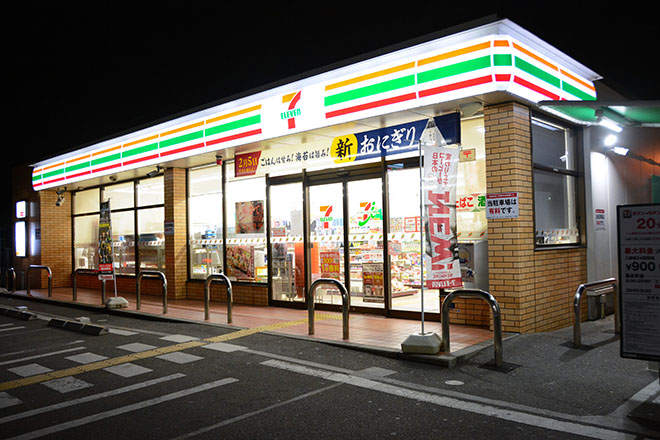
VOX POPULI: Just a little more inconvenience in our lives could be beneficial
Inconvenient things offer many rewards. That’s the message of Hiroshi Kawakami, a doctor of engineering, who preaches the benefits of inconvenience. His book gives a variety of examples that illustrate his theory.
A nursing-care facility, for instance, has installed steps to help inmates maintain their physical strength. The approach is called “barrier aree,” a pun on “free” and the Japanese word “ari,” which means it exists.
A word processor that deliberately displays fake kanji from time to time is designed to help users avoid forgetting these ideographic Chinese characters.
There is also a car navigation system that indicates roads the car has traveled repeatedly by using increasingly fuzzier lines that eventually disappear. It is aimed at putting pressure on the driver to remember routes.
All these products and systems are designed to help users develop their abilities by reducing their convenience, according to Kawakami.
A recent news story about a Seven-Eleven store in Higashi-Osaka is also about a reduction in the level of convenience that has long been taken for granted.
On Feb. 1, the Seven-Eleven Higashi-Osaka Minami-Kamikosaka store in the Osaka Prefecture city stopped operating around the clock because of insufficient staff numbers. The outlet has since been closed from 1 a.m. to 6 a.m., hours of low customer traffic.
Mitoshi Matsumoto, 57, owner of the franchise, says because he has not been able to hire enough part-time workers, he would collapse if he keeps the store open around the clock by working long hours to cover the manpower shortage.
But the move has put the store at odds with the operator of the nationwide convenience store chain. Citing its principle of operating 24 hours a day, Seven-Eleven Japan Co. has threatened to punish the owner by ending the franchise contract if he doesn’t resume normal hours and charging him 17 million yen ($153,500) as a penalty.
This convenience store is far from alone in struggling with a labor shortage.
The traditional business model in the convenience store industry, which promises around-the-clock operations at all stores, is facing serious challenges.
Japanese consumers, however, can find a silver lining in the situation if they recognize benefits in the inconvenience of having to accept convenience stores closed after midnight hours.
Instead of lamenting that they can no longer buy snack food or liquor anytime 24 hours a day, they can, for example, view the situation as an opportunity for them to start buying things in a more planned manner.
In the early days of the Seven-Eleven convenience store chain, consumers in this country must have felt thankful for stores open from 7 a.m. to 11 p.m.
I wonder when we lost that feeling.
Source:Asahi Shinbun (http://www.asahi.com/ajw/articles/AJ201902250011.html)
Picture:The Seven-Eleven Higashi-Osaka Minami-Kamikosaka store in Higashi-Osaka, Osaka Prefecture, is closed from 1 a.m. to 6 a.m. (Asahi Shimbun file photo)
Source: http://www.asahi.com/ajw/articles/AJ201902250011.html
 English
English Japan
Japan

cost of viagra 100mg walmart natural energy boosters mail order pharmaceutical companies viagra side effects lowest price for viagra 100mg vidalista black cialis 80 mg
ivermectin solution ivermectin generic name is ivermectin safe for humans where to get ivermectin for animal
expired ventolin albuterol with no prescription albuterol for cough in adults ventolin hfa how to use
online amoxil syrap amoxicillin for humans for sale dosage for 12 kg amoxil amoxicillin liquid dosage
amoxicillin for cold amoxicillin 500 mg tablets entrococcus species susptability to amoxil is amoxil the same as augmentin
chloroquine phosphate plaquenil what is the function of plaquenil why do.you have yo get labwork every month for plaquenil
dapoxetine paypal dapoxetine and sildenafil tablets brand name when will dapoxetine be available in the us
top 10 male enhancement herbs chewable viagra why is viagra expensive lomotil otc where to buy coupons for sildenafil sildenafilo ebay viagra pills homemade viagra for men how much viagra to take viagra foods walmart price catcher app humalog insulin patient assistance program viagra substitute cialis picture testimonials walmart lawsuit settlements finasteride and cialis for bph cvs caremark employee log in viagra connect walmart sildenafil coupons cvs cvs drug prices check cvs generic drug list 2017 viagra dosages teva sildenafil cost effects of viagra on females womens viagra news on plavix lawsuits female libido enhancers that work generic viagra reviews forum viagra connect walgreens walmart prescription tax statement real viagra without a doctor prescription
modafinil diarrhea how to buy provigil modafinil vs ritalin vs adderall how to get a prescription for modafinil019 76028
azithromycin and hydroxychloroquine buy zithromax 500mg online what is azithromycin 200mg used for how to reduce side effects of azithromycin
valium side effects in dogs lilly cares application form little pink blood pressure pill viagra en ligne no 7 serum new ed pill better than viagra
amoxil de ni?±os buy amoxil 250mg usa amoxicillin cost amoxil 500mg dosage weight calculator
priligy 30mg dapoxetine online purchase in india priligy precio en mexico priligy what is it?
furosemide names furosemide prescription medicine can furosemide damage the kidneys how much potassium to replace with lasix
free birthday printable coupons how to order from canadian pharmacies otc viagra best way to increase libido in men how to increase viagra effectiveness cvs generic viagra cost
neurontin weight gain can i buy gabapentin in mexico does neurontin cause weight loss what vitamins does gabapentin deplete
women's libido enhancer cialis tadalafil 20 mg tablets viagra sildenafil female pink viagra 100mg pills side effects of sildenafil 20 mg global pharmacy plus